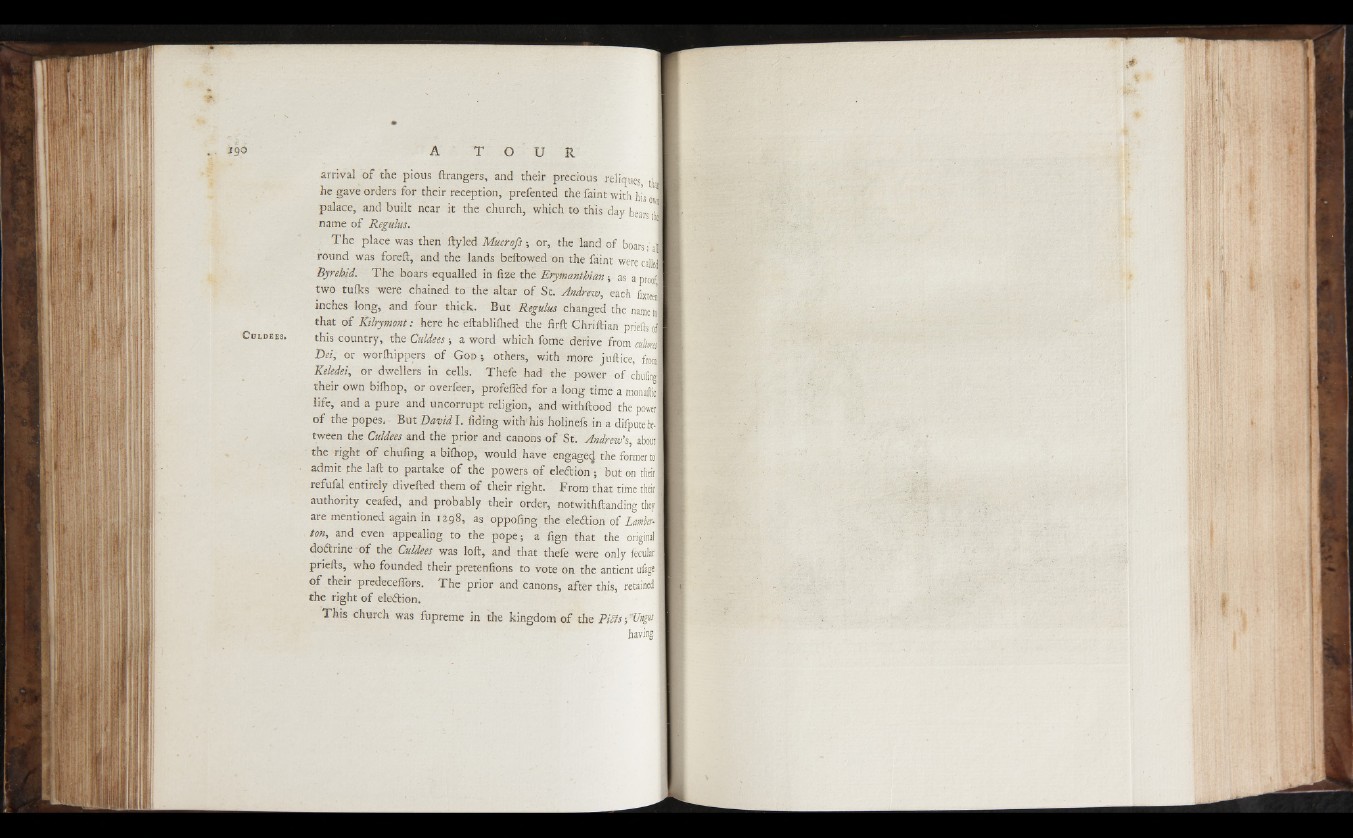
C o tD E E S .
arrival of the pious Arrangers, and their precious reliques J
he gave orders for their reception, prefented the faint with his o j
palace, and built near it the church, which to this day bears J
name of Regulus.
The place was then Ay led Mucrofs; or, the land of b o a rs: a|
round was foreft, and the lands beftowed on the faint w ere callJ
Byrehid. The boars equalled in fize the Erymanthian ; as a proof]
two tulks -were chained to the altar of St. Andrew, each fixJ
inches long, and four thick. But Regulus changed t h e name to
that of Kilrymont: here he eftabliihed the firft Chriftian priefts J
this country, the Culdees ; a word which fome derive from altmj
Dei, or worttiippers of G o d ; others, with more ju f t i c e , fr o j
Keledei, or dwellers in cells. Thefe had the power of ch u iin l
their own biihop, or overfeer, profeffed for a long time a monafticf
life, and a pure and uncorrupt religion, and withftood th e power]
of the popes. But David I. Aiding with1 his holinefs in a difputebe-'
tween the Culdees and the prior and canons of St. Andrew’s, about]
the right of chufing a biAiop, would have engaged the former to]
admit the laft to partake of the powers of eleftion ; but on their
refufal entirely divefted them of their right. From that tim e their]
authority ceafed, and probably their order, notwithftanding they
are mentioned again in 1298, as oppofing the election of Lamk-l
ton, and even appealing to the pope; a lign that the original
doihine of the Culdees was loft, and that thele were only iecularI
priefts, who founded their pretenfions to vote on the antient ufage
of their predecefTors. The prior and canons, after this, retained
the right of election.
This church was fupreme in the kingdom of the Pills yUngus
having